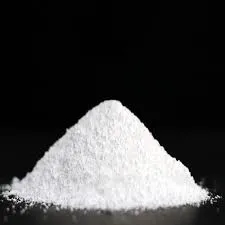Chemicals Used in Wastewater Treatment Plants
Wastewater treatment is a crucial process in maintaining environmental quality and public health. It involves the removal of contaminants from wastewater, making it safe to be discharged back into the environment or reused. Various chemicals play pivotal roles in this treatment process, enhancing efficiency and ensuring regulatory compliance. This article discusses some of the key chemicals used in wastewater treatment plants, their purposes, and the overall importance of these substances in safeguarding the ecosystem.
Coagulants and Flocculants
One of the first steps in wastewater treatment involves the removal of suspended solids. Coagulants, such as aluminum sulfate (alum) and ferric chloride, are added to water to destabilize colloidal particles, causing them to aggregate into larger clumps, or flocs. This process, known as coagulation, is followed by flocculation, which is often aided by polymers. These flocculants help the larger aggregates form more easily and settle out of the wastewater effectively. By removing these suspended solids, the clarity of the water improves substantially, making subsequent treatment stages more effective.
Disinfectants
After solid removal, the next crucial step is disinfection. Pathogens present in wastewater can pose significant health risks if not properly treated. Common disinfectants include chlorine, ozone, and ultraviolet (UV) light. Chlorine is widely used due to its effectiveness and low cost; however, its use requires careful monitoring to avoid the formation of harmful byproducts, such as trihalomethanes. Alternatively, ozone offers a powerful disinfection option without the chlorine-related drawbacks, but it is more expensive. UV light is another effective method that inactivates microorganisms by disrupting their DNA, providing a chemical-free solution for water disinfection.
pH Adjusters
chemicals used in wastewater treatment plants

The pH of wastewater can significantly impact the overall treatment efficiency. The addition of pH adjusters, such as sulfuric acid or sodium hydroxide, helps to maintain optimal pH levels conducive to biological treatment processes. A balanced pH supports the activity of microorganisms in biological treatment stages, ultimately leading to more effective degradation of organic matter. Ensuring the appropriate pH not only enhances the performance of treatment systems but also protects equipment from corrosion and scaling.
Nutrient Additives
In some cases, wastewater lacks essential nutrients like nitrogen and phosphorus, which are critical for biological treatment processes. To optimize the removal of organic matter, wastewater treatment plants may add nutrient supplements such as ammonium sulfate or phosphoric acid. These additives promote the growth of microorganisms responsible for decomposing organic pollutants, enhancing the efficiency of the biological treatment phase.
Defoamers
Foaming can pose operational challenges in wastewater treatment processes, leading to inefficiencies and potential malfunctions in equipment. Defoamers are chemicals added to control and reduce foam formation. These compounds work by breaking the surface tension of bubbles, allowing for better performance during various treatment stages. Managing foam is essential for maintaining the flow and efficiency of the treatment process.
Conclusion
The effective management of wastewater is vital for environmental protection and public health. Chemicals used in wastewater treatment plants, including coagulants, disinfectants, pH adjusters, nutrient additives, and defoamers, play critical roles in processing wastewater efficiently. By utilizing these chemicals appropriately, treatment plants ensure that pollutants are removed effectively, complying with environmental regulations and safeguarding ecosystems. As technology and regulations evolve, the use of more sustainable and eco-friendly chemical alternatives in wastewater treatment will continue to enhance the effectiveness of these essential processes.

